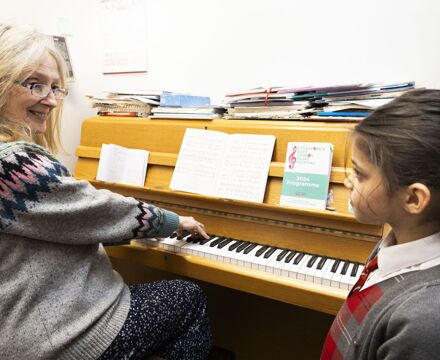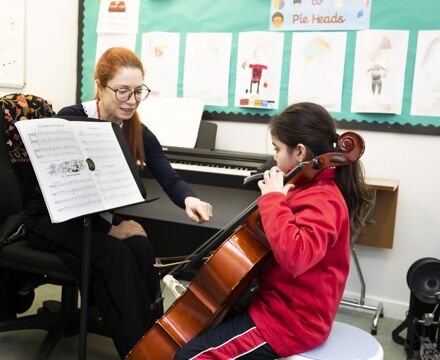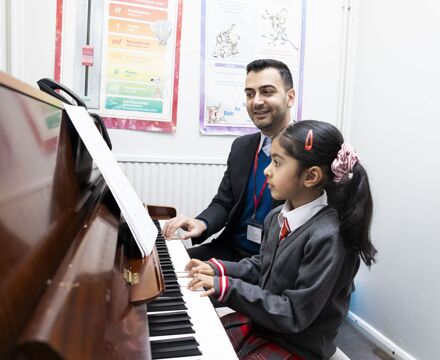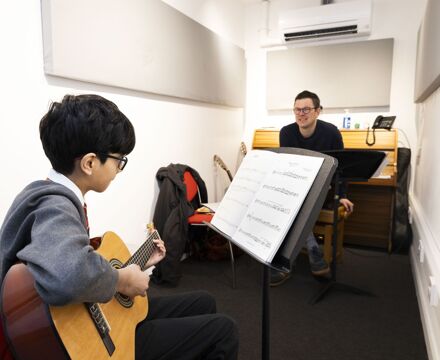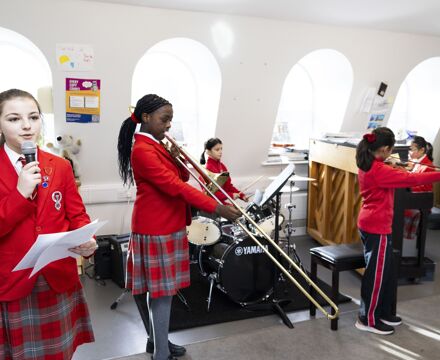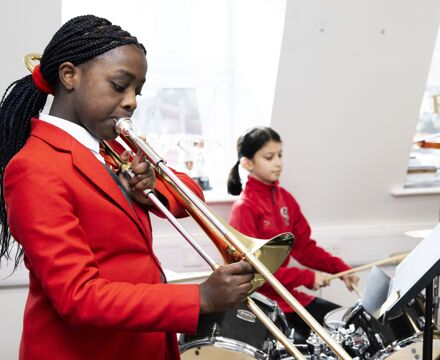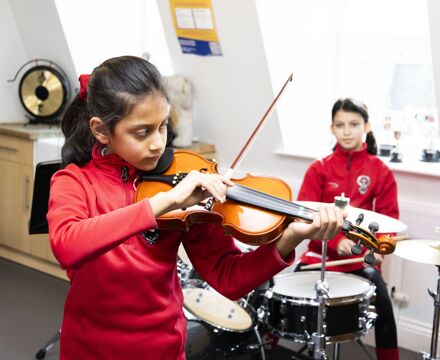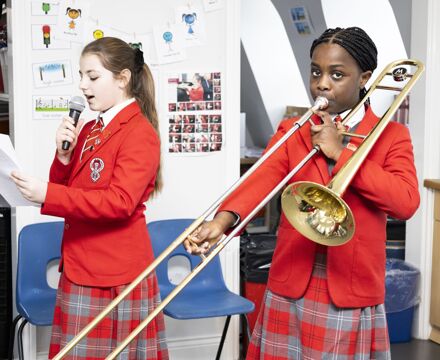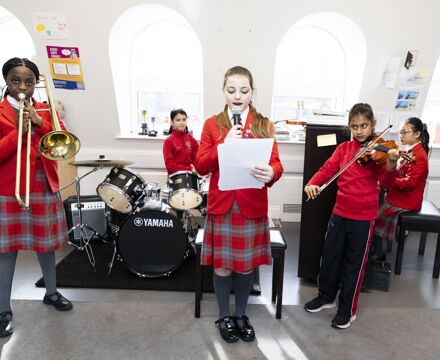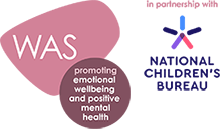- Home
- News & Events
- News Blog
- The benefits to learning a musical instr...
News Blog
The benefits to learning a musical instrument and how to practise a musical instrument:
Posted on: 28th Mar 2024
Playing an instrument improves intelligence:
Einstein once said: “Life without playing music is inconceivable to me. I live my daydreams in music. I see my life in terms of music... I get most joy in life out of music”. And as it turns out, Einstein was onto something: many studies show a correlation between musical training and academic success, in both children and adults. Learning to play an instrument stimulates the brain, improving functions like memory and abstract reasoning skills, which are essential for maths and science.
It increases self discipline and time management skills:
Learning to play an instrument is not a skill which can be mastered overnight. Learning music takes time and effort, and helps children understand that if they want to be good at something, they’ll need to put in the hours and organise their time effectively.
It helps improve your memory:
Researchers have found that learning to play a musical instrument can enhance verbal memory, spatial reasoning and literacy skills. Playing an instrument makes you use both sides of your brain, which strengthens memory power.
It builds your confidence and boosts happy endorphins:
Children can achieve a sense of pride when learning an instrument. As they master the difficult bits, over time and with patience, they become aware of their progress. Performing with others brings a sense of sharing and the social aspect of this is exhilarating. Music can provide a safe place for many children as they can express themselves freely through music.
How to practise effectively:
A good practice regime pays dividends in the long run.
Here are some tips for effective practise:
-
Establish a routine and practise at roughly the same time of day every day.
-
Practice in shorts bursts and extend the amount of time as you get more advanced. It is perfectly ok to practise scales in the morning, for example for 10 mins, and then practise pieces at night but again for only 10 mins.
-
Practise little and often rather than for a lengthy session once a week. This is much more productive; The brain learns by repetition and muscle memory improves from the constant gentle practice. Progress is made through small chunks of practice whereas practising for an hour once a week can be demoralising.
-
Try not to just play through the piece. Practise each hand separately if you are a pianist before putting them together. Be disciplined about listening to where the mistakes are and admit to yourself the bars that you find tricky.
-
Slow the tempo down and break down the music into small chunks which you can practise over and over again. The brain needs to learn an action 18 times before it has secured it so go over that bar at least 5 times as a minimum.
-
Listen to your tuning especially if you are a string player. Do not tune with your eyebrows! So many of us hear a note out of tune and then raise our eyebrows to make the note sharper because we can hear that it is flat - this will not improve intonation! Have a look at your fingers and check if they are in the correct place.
- Let your ears guide you.

